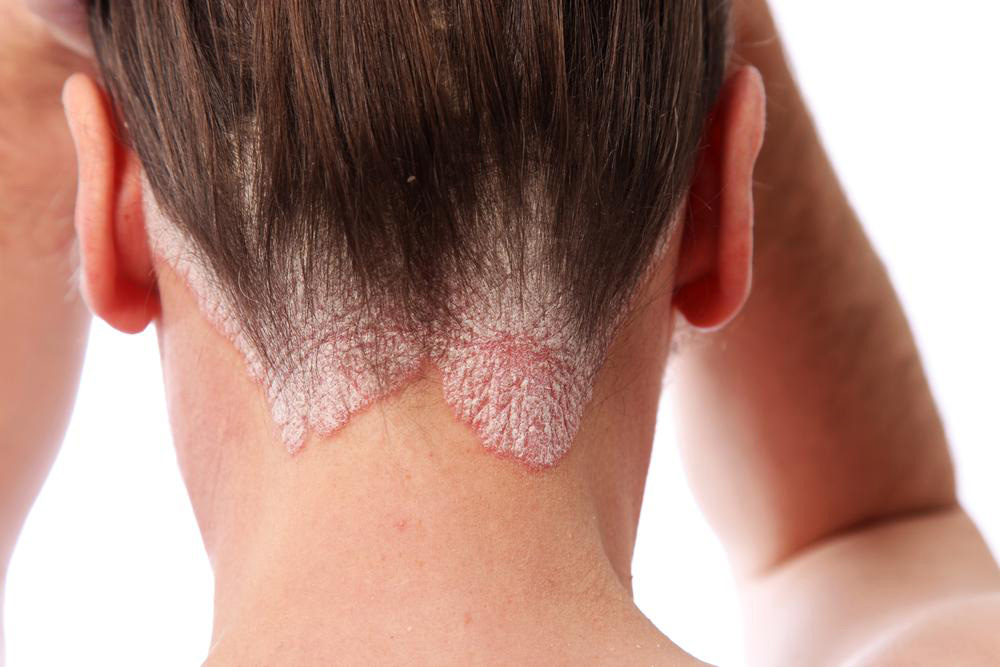Ultimate Guide to Selecting the Best Shampoo for Managing Scalp Psoriasis
Discover the ultimate guide to choosing the best shampoo for scalp psoriasis. Learn about tar-based, salicylic acid, and keratolytic shampoos, their benefits, usage tips, and precautions. Achieve relief and improve scalp health with tailored treatments and expert advice.

Scalp psoriasis is a common and often challenging skin condition that affects a significant number of individuals worldwide. This chronic skin disorder is characterized by an overactive immune response that triggers accelerated skin cell turnover, leading to symptoms such as redness, inflammation, scaling, and itching on the scalp. Finding the right shampoo tailored to soothe and manage these symptoms is critical for improving scalp health and enhancing quality of life. However, with numerous options available, identifying the most effective shampoo can be overwhelming.
Choosing an appropriate shampoo involves understanding the specific needs of your scalp based on the severity of psoriasis, skin sensitivity, and any underlying health conditions. If your current shampoo fails to reduce redness, scaling, or discomfort, it might be time to consider a targeted treatment approach. This comprehensive guide aims to demystify the different types of medicated shampoos suitable for scalp psoriasis, outlining their benefits, usage instructions, and precautions to help you make an informed decision.
Understanding Scalp Psoriasis and Why Shampoo Choice Matters
Scalp psoriasis manifests as scaly patches, plaque buildup, and inflammation that can cause significant discomfort and cosmetic concerns. Traditional shampoos often do not address the underlying inflammation or excessive skin cell turnover associated with psoriasis. Therefore, medicated shampoos formulated specifically for psoriasis help reduce symptoms, prevent flare-ups, and support scalp health.
Proper shampoo selection can mitigate symptoms such as itching, pain, and flaking, offering relief and promoting healing. Moreover, consistent use of appropriate medicated shampoos, along with other dermatological treatments, enhances overall management of the condition.
Different Types of Shampoos for Scalp Psoriasis
Tar-Based Shampoos
Salicylic Acid Shampoos
Keratolytic Shampoos
Tar-Based Shampoos: Nature’s Remedy for Psoriasis Relief
Tar-based shampoos are among the most widely prescribed treatments for scalp psoriasis. Derived from coal tar or vegetable sources, these shampoos work by slowing down excessive skin cell production, which reduces scaling and plaques. They also possess anti-inflammatory and antipruritic properties that soothe itching and inflammation.
When using tar shampoos, application involves applying to damp or dry scalp, massaging gently into the scalp, and allowing the active ingredients to sit for approximately 8-10 minutes before rinsing thoroughly. It's recommended to avoid using conditioners immediately after application to maximize effectiveness. Tar shampoos with higher tar concentrations tend to be more potent but should be used cautiously to avoid irritation.
It is important to note that tar shampoos are not suitable for pregnant women or individuals with open scalp wounds, skin infections, or allergies. Also, prolonged use may lead to photosensitivity, so sun protection is advised during treatment.
Salicylic Acid Shampoos: Helping to Eliminate Excess Skin and Flakes
Salicylic acid is a keratolytic agent that effectively softens and removes scales associated with psoriasis. These shampoos are particularly beneficial for thinning plaques and reducing the thickness of scaly patches, making other topical treatments more penetrable.
To maximize their benefits, apply salicylic acid shampoos on a dry scalp, massaging gently and leaving the product on for about 4-5 minutes before rinsing thoroughly. Regular usage can improve symptom control over time. However, caution is essential because systemic absorption of salicylic acid can pose risks, especially in individuals with diabetes, kidney or liver issues, or those prone to Reye syndrome. Pregnant women should also avoid prolonged or habitual use of salicylic acid shampoos.
Keratolytic Shampoos: Potent Agents for Severe Cases
In instances of severe or stubborn scalp psoriasis, keratolytic shampoos may be prescribed by dermatologists. These products contain higher concentrations of active ingredients designed to promote rapid shedding of excess skin, thereby reducing plaques and inflammation more aggressively than milder shampoos.
Due to their strength, keratolytic shampoos should be used under medical supervision, avoiding extended or frequent application. Proper consultation with a healthcare provider is crucial to ensure safe and effective use, as misuse can result in scalp irritation or damage.
Tips for Using Psoriasis-Medicated Shampoos Effectively
Follow the manufacturer's instructions carefully for application and duration of use.
Monitor your scalp's response and discontinue use if you experience increased irritation or allergic reactions.
Combine shampoo therapy with other treatments, such as topical corticosteroids or moisturizers, for comprehensive management.
Maintain scalp hygiene but avoid excessive washing, which can worsen irritation.
Protect your scalp from sun exposure during treatment, especially when using tar-based products.
When to Seek Medical Advice
If your scalp psoriasis symptoms persist despite using medicated shampoos or worsen over time, consult a dermatologist. Persistent redness, severe scaling, burning, or pain necessitates professional evaluation and possibly adjustments in your treatment plan. Also, if you experience side effects such as excessive dryness, irritation, or allergic reactions, seek medical advice promptly.
Managing scalp psoriasis effectively involves a tailored approach that includes choosing the right medicated shampoo complemented with other therapies. With the right products and proper skin care, you can control symptoms, reduce discomfort, and promote healthier scalp skin. Always remember that individual responses vary, and ongoing consultation with your healthcare provider is essential for optimal results.





